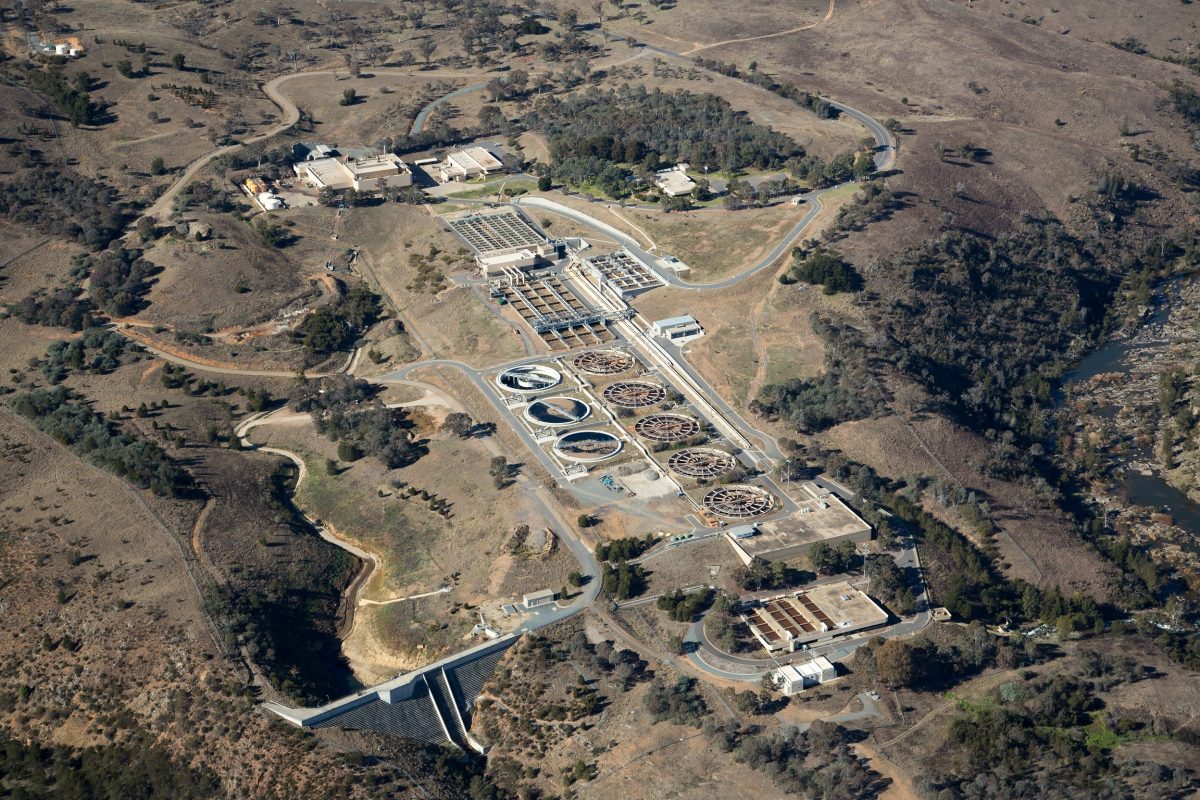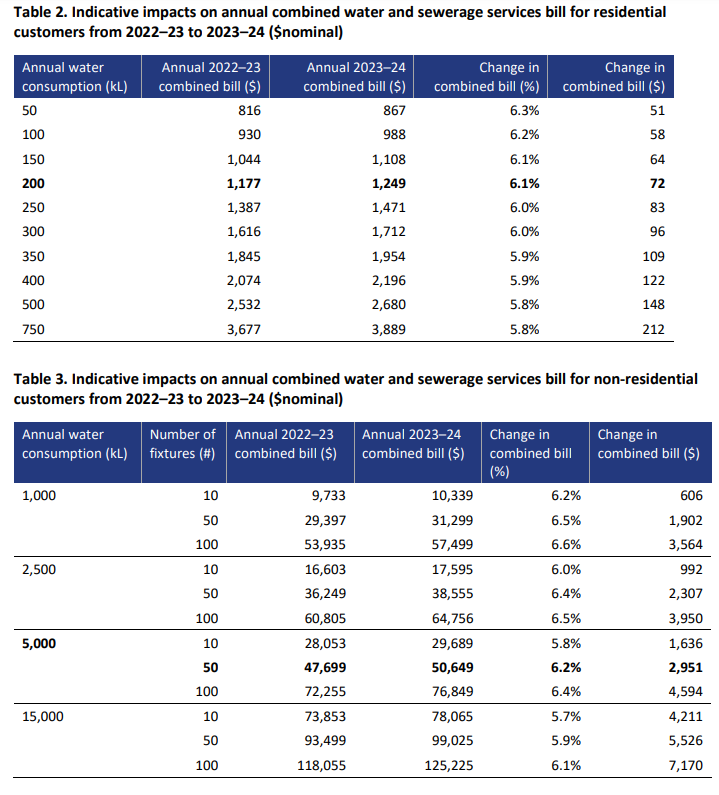
Upgrades to the Lower Molonglo wastewater treatment plant are among the capital works to be paid for partly through the price increase. Photo: Icon Water.
Water and sewerage bills are set to rise by an average of $72 a year over the next five years in the ACT, with the increase set to begin from 1 July.
However, it’s less than Icon Water had hoped for, with its original price increase knocked back by the Independent Competition and Regulatory Commission (ICRC).
ICRC Senior Commissioner Joe Dimasi said the decision would see the combined water and sewerage services bill, for an average household consuming 200 kilolitres a year, increase by 6.1 per cent per year on average over the 2023-28 regulatory period.
“Under our final decision, an average residential customer will pay $1249 for its annual combined bill in 2023-24, an increase of $72 (or 6.1 per cent) compared to 2022-23,” he said.
“Despite this increase, the combined water and sewerage services bills for residential consumers in the ACT will be around the average of comparable jurisdictions.”
This is higher than the 4.2 per cent increase predicted in the commission’s draft report, reflecting actual inflation experienced since October 2022 and additional submissions by Icon Water for operating expenditure and increased financing costs.
The average price for businesses (or non-residential customers) consuming 5000 kilolitres per year with 50 flushable fixtures will see a $2951 (6.2 per cent) increase in its 2023-24 bill.

How water and sewerage bills are expected to change, subject to inflation changes. Photo: ICRC.
The ICRC’s final report stated customer bills between 2024-25 and 2027-28 could differ from current expectations if inflation differed from the expected 2.92 per cent a year.
“[They could also change] if there are material changes in Icon Water’s non-controllable costs that trigger a pass-through event during the next regulatory period and if Icon Water’s borrowing costs change,” the report stated.
Mr Dimasi explained the price increase compared to the current inflation rate of 6.2 per cent in the Territory (in the 12 months to March 2023) was driven by inflation, higher than expected financing costs for Icon Water’s investments over the next five years, and a “significant increase” in proposed capital spending by Icon Water.
Icon Water plans to spend more than $378 million on projects, including the Lower Molonglo Secondary Treatment Bioreactors upgrade, Lower Molonglo Biosolids Management Renewal, sewer mains renewal program and the Cotter Pump Station upgrade.
Mr Dimasi said the increase chosen reflected the ICRC’s decision to reduce Icon Water’s allowed revenue requirement by $102 million (5.1 per cent) and to seek “greater efficiencies”.
“The commission appreciates Icon Water’s cooperative approach and constructive engagement throughout the price investigation,” he said.
The report added: “If we accepted Icon Water’s proposal in full, prices would rise by 7.9 per cent per year, or 47 per cent over the five-year period for an average residential customer.”
Despite the price rise being lower than what was submitted by Icon Water, managing director Ray Hezkial said this wouldn’t change or postpone any planned works and upgrades outlined in the business’s capital spending plan.
“If we do wait too long [to upgrade infrastructure], we end up risking increasing our operating costs … and high levels of service,” he said.
“We won’t be changing anything we’ve planned to deliver as a consequence of this decision.”
Mr Hezkial explained Icon Water had put forward the case for a 6.5 per cent increase because of cost of living pressures, from the rising cost of electricity and treatment chemicals to interest rates.
“We have the same pressures households face when paying a mortgage. We’re also borrowing money to build this infrastructure,” he said.
The capital works program was developed in consultation with more than 17,500 Canberrans that identified the community’s top priority was water security and maintaining levels of service.
This includes upgrading Canberra’s main wastewater treatment plant in the Lower Molonglo, one of the country’s largest inland sewerage treatment plants.
“These next rounds of upgrades aren’t sudden or surprising to us. They’re staged and planned upgrades,” Mr Hezkial said.
“We’re quite committed to delivering our capital works program, so this won’t change that.”
Original Article published by Claire Fenwicke on Riotact.






